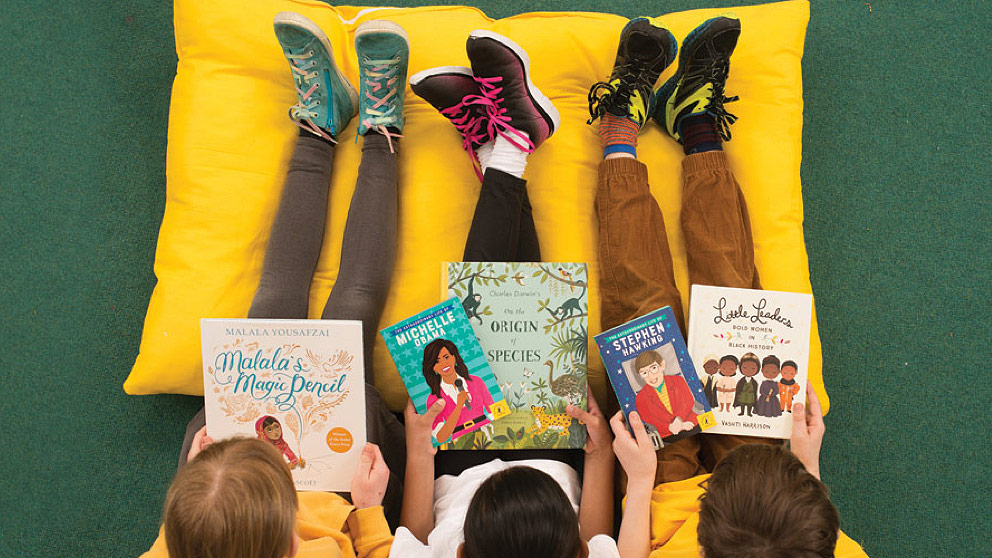Victoria Dilly from the National Literacy Trust shares her top tips for using libraries and reading spaces to support pupils well-being.
Effective school libraries can be one of the best places to support and nurture pupils’ wellbeing and empathy through encouraging reading for pleasure. Research shows that children and young people who use the school library have better mental wellbeing than their peers who don’t use the school library . If we can encourage children to use the school library and read for pleasure, then we can positively impact their wellbeing.
Invite them in!
How welcoming is your school library? Do your reading spaces look and feel inviting? Research shows that a welcoming environment helps to encourage more children to use the school library. The library can provide a safe haven for pupils who find the playground daunting or who would just like some quiet time. Make your reading spaces inviting with comfy seating, accessible shelves and interesting displays highlighting great reads. You don’t have to break the bank – cushions on the floor make a great place to sit, read and relax; repurposing a play tent creates a fantastic reading nook; and utilising household objects such as a suitcase can be a great way to showcase books!
Give them time
Creating time to read for pleasure is one of the most important things we can do for our children. With the school day so busy, this can be difficult. What better way to make good use of your school library than to allocate specific time for each class to sit quietly and read a book of their choice? Research shows that the benefits of reading for pleasure are boundless, helping children flourish at school, lead happier lives and have increased levels of empathy, so making time for it is essential. Timetabling the space and opening it at break and lunch time will ensure all classes have the opportunity to do this and will help teachers plan effectively.
Help them choose
When children choose their own books they are more likely to enjoy them and its enjoyment of reading that brings the most benefit . You can help them by keeping your book knowledge up to date and ensuring the library holds a diverse and varied collection that supports their interests. Recommending with insight will help guide them to books that will engage them. Choosing books is a skill, so make sure you take time to show pupils how - especially younger children who are just discovering reading!
Sharing is caring
One of the best ways to find out about books is to share reading experiences. This can happen in books groups, during library time or even in the playground. Give pupils opportunities to share their thoughts and ideas about what they’re reading and recommend books to each other. You’ll be amazed at the conversations that take place and the pupils will develop their communication skills as well as their empathy and understanding.
Not just a room full of books!
School libraries come in all shapes and sizes – from garden sheds to a bus parked in the playground. Whatever library space you have, as well as being somewhere that celebrates reading, it can also become a hive of creativity through running fun activities for the whole school community to participate in. In addition to book groups, you could hold writing clubs, comic creation sessions, reading buddies schemes, storytime for mums and dads, and all manner of activity that will bring your library space to life. Be creative and your pupils won’t want to leave the library!
Victoria Dilly
Programme Manager, Love our Libraries
National Literacy Trust
@bookactivist1

